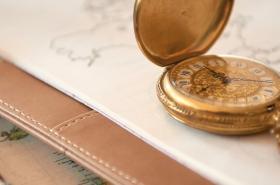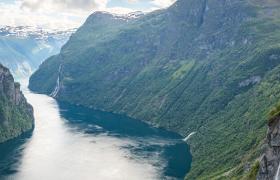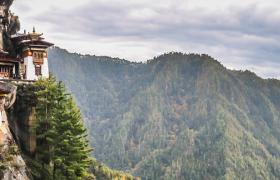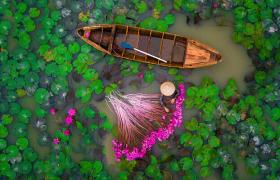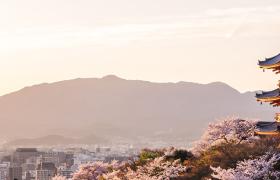Where do people go when they've already been everywhere? On a ship that goes to places nobody else can get to. Read about pass-passenger Andrew Evans' first hand experience of life on board MV Orion (to be renamed National Geographic Orion in 2014).
Custom-built for expedition-style travel, MV Orion takes you to the world's more inaccessible places--place like Papua New Guinea, Australia's wild northwestern Kimberley coastline, the remote corners of Indonesia, the lesser-known side of Antarctica, and as was my good fortune, the uninhabited windswept islands of New Zealand's sub-antarctic. In English, those islands are: Macquarie Island, Campbell Island,Auckland Islands, the Snares, and Stewart Island--all forgotten bits of rock and shrubs in the Southern Ocean. Places where birds outnumber humans by about a million to one and if it's not raining, then it's about to.
It takes a certain kind of traveller to embark on such a voyage. This is not your typical spring break cruise to St. Thomas. Yes, there is a lounge with a talented musical act that plays late into the night. Yes, there is a spiral staircase near the bow with shiny brass handrails and a glass elevator shooting up to the top deck. Yes, the cruise director makes announcements on the loudspeaker ("dress warmly"), and yes, one eats abundantly and well (the food is extraordinary), however... there are some key differences.
Perhaps most important is that the Orion experience is intimate. While the cruise ship industry is trending towards behemoth floating cities (population 6,000) the MV Orion carried only 75 passengers (during my expedition) along with a crew of 75 (not such a bad ratio). Over the course of two weeks I had the chance to get to know every single passenger on board and what's more, we all liked each other. Indeed, it's not where you travel, but who you travel with that matters. Enamored birdwatchers were in search of the rare species, retirees were living out their lifelong dreams, a honeymooning couple was being unconventional, map nerds like me kept checking the library's atlas against our personal GPS, and everyone showed an authentic lust for life.
The Captain was equally fun and down to earth. He had no problem diverting the ship so that we could get a closer look at passing icebergs, and when the weather turned out to be nicer than normal, he sped ahead to grant us an extra day with the penguins.Cliche as it may sound, every day was an adventure. After breakfast we suited up in our all-weather gear, then headed out in rubber zodiacs to the shore of whichever island we were exploring. Surely, the real luxury was found in the abundance and proximity of wildlife we experienced. In the course of 12 days, I saw over 80 bird species, at least half of which were endemic to the islands we were visiting. We hiked through rare albatross nesting grounds, watched yellow-eyed penguins tiptoe through fields of flowers and compete for beach space with bellowing bull elephant seals. Each day ended with an in-depth review of the day's experience in pictures followed by a briefing that detailed tomorrow's plan. Lectures were offered for anyone wanting to learn the intricacies of everything we experienced, from the plants and geology to pressing conservation issues for each of the islands we were visiting. In short, imagine a two week-long field trip for grown-ups but with 9-course tasters' menus instead of a brown bag lunch instead and chilled champagne instead of juice boxes.
Also, my room was really nice. In fact, it wasn't so much a room as it was the largest suite on the ship, a huge suite that was larger than most Manhattan lofts, which made me the spoiled one on the ship. However, I loved having a big desk to work on (with satellite internet) and a starboard balcony from which I could watch a considerate flow of dramatic scenery (a seagull even flew into my room, once). I also appreciated my own private deep dish bathtub with a square picture window which allowed for one to enjoy a bubble bath at sea. Surely the first sailors to happen upon these far flung islands did not luxuriate so. I slept a blissful eight hours every night, rocked gently by the waves of the Tasman Sea.
The common caveat phrase that cruise-goers love to use is, "you only have to unpack once." That was definitely my experience--I unpacked my bags in Hobart and within the first day, felt as if my private domain reached to the farthest horizon. The word 'exclusive' fails to capture the notion that I developed of traveling on the only ship on the only sea in the world. We went more than a week without seeing another ship and even longer without seeing any other humans.Nature is a luxury in today's world. Being surrounded by it--having seals poke their noses up from the water and then do water ballet under your shadow, getting a glimpse of a little brown bird that was once thought to be extinct, witnessing the icebergs you only heard about in the news, visiting a map speck that most of the world will never see--all of this is the kind of luxury that matters on an expedition ship.
It was great, obviously, and totally my style of travel: adventurous, comfortable and extremely nice--but relaxed nice, not prissy nice. On the MV Orion, I was glad to see that the destination mattered more than the amenities, and yet we were all so well-provided for as to never need worry about amenities. In fact, my main critique is that the food was just too good. With a menu designed by Australia's celebrity chef Serge Dansereau, the Orion broke cruise ship conventions by offering small portions of gourmet standard in as many or as few courses as you wished, served by professional waitstaff. Lunch was served buffet-style but in a tasteful way that never got dull.
In the first week, we ate Spanish, Filipino, Mexican, French, and Lebanese cuisine.Sailing to the ends of the earth while staying dry, well-fed and comfortable is not a cheap endeavor: we're talking just under a thousand dollars a day but (there's always a but) this trip was definitely worth it.
That's my new measure of good commercial travel products--do you get out of it what you put into it? For me, at the end of the day, as I laid down to sleep with a mind filled with dancing baby penguins and dramatic seascapes and memories of the afternoon's lemon meringue teatime, I had to confess that it was all worth the price tag. In fact, as our credit card company likes to remind us: some things, like getting kissed by a baby seal, are priceless.



